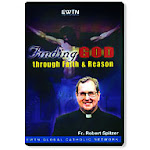by Michael Cook | 3 Jul 2010
Amongst scientists who promoted the use of human embryonic stem cells five years ago, in the middle of passionate debates in the US, Australia and elsewhere, few were more influential in shaping the ethical debate than Harvard’s George Q. Daley. “We must support the vitally important applications of embryonic stem cells to medical research,” he testified to a Congressional committee in 2005.
He contended that work on hESCs was so important that it could not be delayed. It was needed for cures, drug development and genetic research. The fact that years had passed without results made no difference. “The field of human embryonic stem cell research is a mere 7 years old, so it is premature to expect successful cell therapies to have already been delivered to patients.”
Now, he has transferred the same sense of urgency and excitement to an ethical non-controversial alternative to hESC research which he dismissed before the committee – induced pluripotent stem cells (iPS cells). At the time, he said, “Although this strategy is worth pursuing, it is extremely high-risk, and may take years to perfect, and may never work as well as nuclear transfer, which we know we can practice today.”
However, in 2007 iPS cells were developed by Shinya Yamanaka. Professor Daley immediately stopped campaigning for hESCs. In an interview with Nature Medicine, he says, “Once Yamanaka solved the problem, I turned around virtually my entire program to take advantage of that breakthrough.”
In language remarkably similar to his 2005 testimony, he now promotes iPS cells: “There's no reason in my mind to think that we're not going to have iPS cells that function as well as embryonic stem cells.” Why haven’t there been any cures yet? “You can't hold the field to too high a standard. It's only been two years, and a lot of this stuff is in the pipeline.” ~ Nature Medicine, June
Continue reading at BioEdge: Leading stem cell scientist quietly drops embryonic work









No comments:
Post a Comment